The Best Home Remedy For (Anemia) Low Iron
What is Anemia? When a person is diagnosed to have anemia, it means that person’s blood cells count is lower. So we can simply call anemia a deficiency of the red blood cells or can be called low levels of hemoglobin in the blood. Red blood cells carry oxygen to the cells by hemoglobin. A deficiency in one of these means a low oxygen supply to tissues in the body.
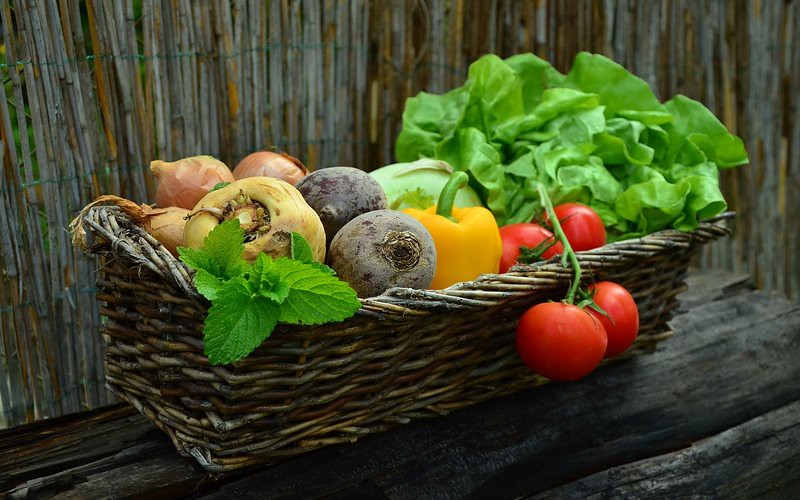
Hemoglobin deficiency leads to a malfunction of the respiratory system and causes many diseases. Anemia can be caused by blood loss in other words not enough red blood cells are produced in the body or a greater amount of red cells are being destroyed. The causes of anemia can be listed below.
Causes Of Anemia
- Low red blood cell production due to loss of bone marrow activity. When the body stops producing enough red blood cells, this type of anemia which is called “plastic anemia” where increasing the chances of catching infections.
- The deficiency of the body to absorb vitamin B12 from food. This type of anemia is generally known as pernicious anemia.
- Inherited Diseases blood. Genetic causes of anemia such as sickle cell disease are transmitted by genes. In sickle cell anemia, blocked cell bodies get proper blood circulation. Thalassemia is another inherited disease where the body does not have certain genes or different genes that are not normal and are passed from parents to kin. These conditions affect the process of production of hemoglobin.
- Iron deficiency in the diet may cause low growth of red blood cells.
- Heavy Loss of blood due to hemorrhoids (bleeding piles), heavy menstruation, and injury.
- A deficiency of vitamins, such as folic acid, vitamin C, vitamin B12, B6, especially folic acid and copper. This type of anemia can be known as anemia of vitamin deficiency.
- Chronic diseases such as renal failure, tuberculosis, cancer, rheumatoid arthritis, etc. can also cause anemia, especially when the person is treated with chemotherapy or radiotherapy.
- The continued destruction of red blood cells.
- Lack of hydrochloric acid used for the digestion of protein and iron can cause anemia.
- The presence of intestinal parasites that feed on vitamins and other nutrients may also lead to the deficiency of nutrients in the body leading to anemia.
Symptoms Of Anemia
- Problems like bloating, Indigestion and constipation, and other digestion related are also seen in Anemia.
- My heartbeat growing fast. Even minor activities can increase heart rate in excess.
- The skin may appear Pale due to blood loss.
- Nails and lips may appear Discoloration.
- The type of anemia known as “Pica”, In which the person suffering from anemia craves eating non-food substances, such as soil, coal, starch, or even hair. This is one of the signs of anemia signposted nutritional deficiency.
- Fatigue inhibits a person to perform for long hours.
- The hands and feet of the Anemia patient feel cold.
- Shortness of breath and dizziness and lack of vitality.
- Sleeplessness is also a sign of anemia in several cases.
Lifestyle Recommendations for Anemia Patient
Avoid ingesting antacids, coffee, and tea which is crucial for the treatment of anemia. Caffeine derivatives from beverages and other substances may reduce iron absorption by the body. The sun’s rays help in the production of red blood cells and, sunbathing in the early morning or late at night for 15 to 30 minutes is beneficial for the treatment of anemia.
Ayurvedic massage body and wet or dry scrubbing are also beneficial in anemia. Epsom Warm baths and cold baths for 10 minutes a week can also help in the treatment of anemia. Cooking in iron pots had been an ancient Indian tradition that should be taken by people who have anemia, which significantly increases the amount of iron in food.
Dietary Recommendations For Anemia
A healthy diet rich in iron and vitamins is the basic requirement to cure anemia. Whole grains, legumes, nuts, dried dates, beets, red meat, legumes, eggs, fish, organ meats, and dairy products like cheese, yogurt, etc., are essential to maintain the production of hemoglobin in the upper levels.
Green leafy vegetables and grains are necessary to counteract the deficiency of folic acid. Natural sources of vitamin C, such as Indian gooseberry (amla), peppers, guava, etc. must also be included in the diet. Eating apples on a regular basis is a good remedy for anemia. Parsley, lettuce, and spinach are good for increased production of red blood cells.
Herbal Remedies for Anemia
Anemia is a condition characterized by a deficiency of red blood cells or hemoglobin in the blood, which can lead to fatigue, weakness, and other symptoms.
While herbal remedies may provide some relief or support for anemia, it’s important to note that they should not replace medical treatment or advice.
If you suspect you have anemia, it is essential to consult with a healthcare professional for proper diagnosis and treatment. That being said, here are a few herbal remedies that are often mentioned in relation to anemia:
1. Nettle (Urtica dioica):
Nettle is rich in iron, vitamins (such as vitamin C), and minerals that can support iron absorption and stimulate the production of red blood cells. It can be consumed as a tea or taken in supplement form. However, it is advisable to consult a healthcare provider before using nettle as it can interact with certain medications.
2. Dandelion (Taraxacum officinale):
Dandelion is known for its high iron content and is believed to help increase hemoglobin levels. It can be consumed as a tea, in salads, or as a supplement. Dandelion leaves are also a good source of vitamins A and C, which can aid in iron absorption.
3. Yellow Dock (Rumex crispus):
Yellow dock root is traditionally used as a blood tonic and is believed to support the production of red blood cells. It contains iron, vitamins, and minerals that can help alleviate anemia symptoms. Yellow dock root can be taken as tea or in supplement form, but it’s important to follow the recommended dosage.
4. Alfalfa (Medicago sativa):
Alfalfa is a nutrient-rich herb that contains iron, vitamin K, and other vitamins and minerals. It is believed to support the production of hemoglobin and aid in the treatment of anemia. Alfalfa can be consumed as a tea or taken in tablet or capsule form.
5. Spirulina (Arthrospira spp.):
Spirulina is a type of blue-green algae that is rich in iron, vitamins, and minerals. It is known to increase hemoglobin levels and improve overall iron status. Spirulina can be taken as a supplement or added to smoothies or juices.
6. Ashwagandha (Withania somnifera):
Ashwagandha is an adaptogenic herb that has been traditionally used in Ayurvedic medicine. It is believed to have rejuvenating properties and can help improve energy levels and reduce fatigue associated with anemia. Ashwagandha can be taken in powdered form, as a capsule, or as a liquid extract.
7. Ginger (Zingiber officinale):
Ginger is known for its various health benefits, including its ability to enhance blood circulation. It can stimulate blood flow and improve iron absorption, which can be beneficial for individuals with anemia. Ginger can be consumed as tea, added to meals, or taken as a supplement.
8. Yellow Saffron (Crocus sativus):
Yellow saffron, commonly known as saffron, is a spice derived from the Crocus flower. It contains compounds such as crocin and safranal, which are believed to stimulate the production of red blood cells. Saffron can be added to dishes, teas, or taken in supplement form.
9. Licorice (Glycyrrhiza glabra):
Licorice root has traditionally been used to support adrenal function and enhance energy levels. It may also help improve iron absorption and promote the production of red blood cells. However, licorice should be used with caution, as excessive consumption or prolonged use can lead to high blood pressure. It is advisable to consult a healthcare professional before using licorice.
10. Yellow Gentian (Gentiana lutea):
Yellow gentian is an herb often used in traditional European herbal medicine. It is believed to stimulate the production of gastric juices, which can improve digestion and enhance nutrient absorption, including iron. Yellow gentian root can be taken in the form of a tincture or herbal infusion.
Note: Remember, while these herbal remedies may have some potential benefits for anemia, it is crucial to consult a healthcare professional before using them.
Especially if you have an existing medical condition or are taking any medications. Additionally, a balanced diet that includes iron-rich foods like lean meats, leafy greens, legumes, and fortified cereals, along with proper medical treatment, is essential for managing anemia.



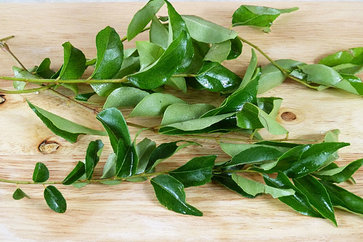


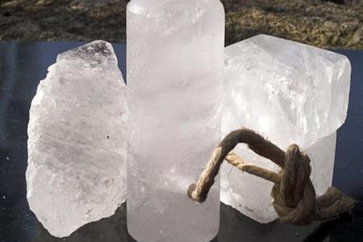
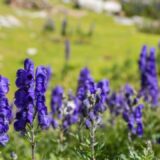
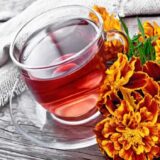















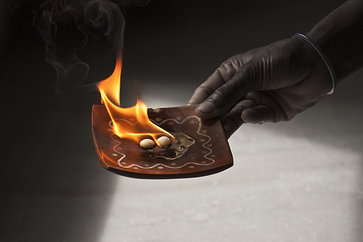


Good blog! I truly love how it is simple on my eyes and the data are well written. I am wondering how I might be notified whenever a new post has been made. I have subscribed to your feed which must do the trick! Have a great day!
Nearly every person believes that anemia is caused by iron deficiency in the bloodstream but in reality, anemia is indicated by insufficiency in the hemoglobin of the red blood cells ebbing before the ability of the blood to transport oxygen to our cells and to strike out carbon dioxide.
Ayurveda is a popular alternative therapy which has cure for many ailments including the chronic ones and also anemia. Ayurveda highly recommends the consumption of fruits like banana, honey, oranges and beetroot juice.